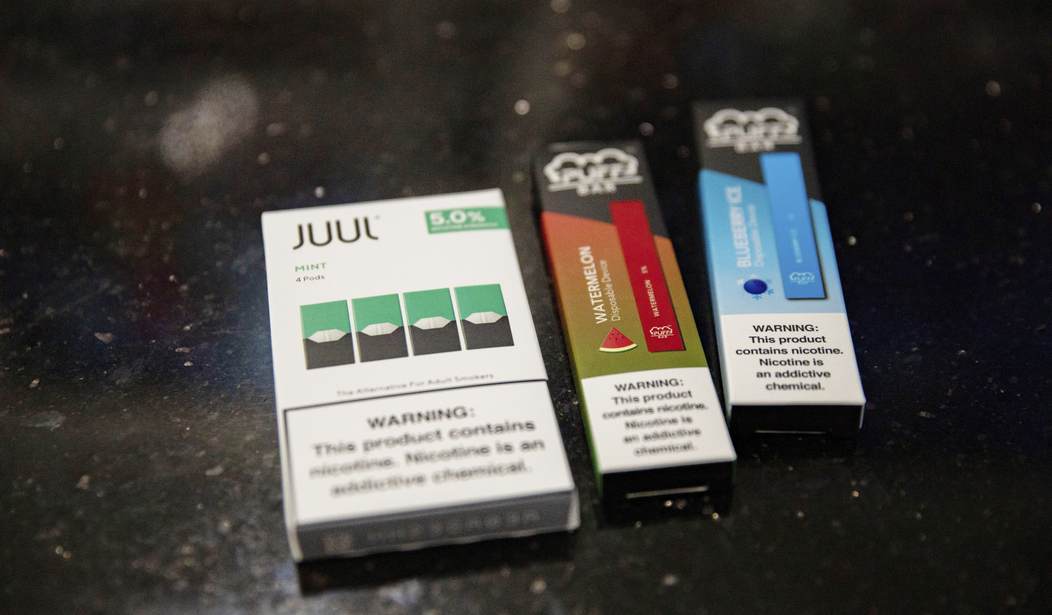(The opinions expressed in guest op-eds are those of the writer and do not necessarily represent the views of RedState.com.)
According to multiple reports, the Food and Drug Administration (FDA) is preparing to issue an across-the-board ban on immensely popular Juul vaping products, which will undoubtedly do more harm than good over the long run.
In 2007, vaping products, also known as e-cigarettes, made their debut on the U.S. market. Since then, millions of Americans (including this author) have used them as a much safer alternative (95 percent less harmful) to cigarettes.
Vaping devices, unlike far-more-harmful combustible, tobacco cigarettes, do not contain tobacco or any of the other chemicals proven to cause cancer. According to the U.S. Food and Drug Administration, “These products use an ‘e-liquid’ that may contain nicotine, as well as varying compositions of flavorings, propylene glycol, vegetable glycerin, and other ingredients. The liquid is heated to create an aerosol that the user inhales.”
So, why in the world would the FDA ban a product that is significantly safer than cigarettes, which are still available on the market? Apparently, because the FDA believes that vaping products such as Juul represent a dire threat to American teenagers.
Rewind to 2019. Remember the so-called teen vaping epidemic? In the summer of 2019, the mainstream media reported on an outbreak of teens dying after using Juul-like vaping products. However, this was nothing more than media fearmongering at its worst.
As the Centers for Disease Control and Prevention (CDC) eventually admitted, “We do not yet know the specific cause of these lung injuries. The investigation has not identified any specific e-cigarette or vaping product (devices, liquids, refill pods, and/or cartridges) or substance that is linked to all cases.”
Then the CDC dropped this bombshell, “Based on initial data … we know: Most patients have reported a history of using e-cigarette products containing THC.”
In other words, legal vaping devices and associated products had nothing to do with the outbreak of lung injuries among teenagers during the summer of 2019. The health problems were solely due to illegal THC cartridges being inserted into completely legal vaping devices.
Nevertheless, the events of the summer of 2019 sparked a backlash against vaping companies, especially Juul. In short order, flavored pods were banned because they allegedly appealed to teenagers. Some states also upped the age requirement to buy vaping devices to 21.
Yet, these flavor bans only applied to devices that use a closed pod system, such as Juul. To this day, one can purchase almost any flavor for use in an open pod system device.
For many people who choose to vape, the closed pod system is a more convenient method to vape. Open pod systems, although cheaper, are prone to leak and require more maintenance than the simple-to-operate closed pod system pioneered by Juul.
Perhaps that is why the FDA is dropping the hammer on Juul. In many ways, Juul became the face of vaping when its incredibly popular closed pod system hit the market around 2010.
The FDA should not ban products like Juul just as it should not ban sugar-laden cereals or fat-filled donuts. At what point do we the American people say enough is enough?
Chris Talgo ([email protected]) is senior editor at The Heartland Institute.













Join the conversation as a VIP Member